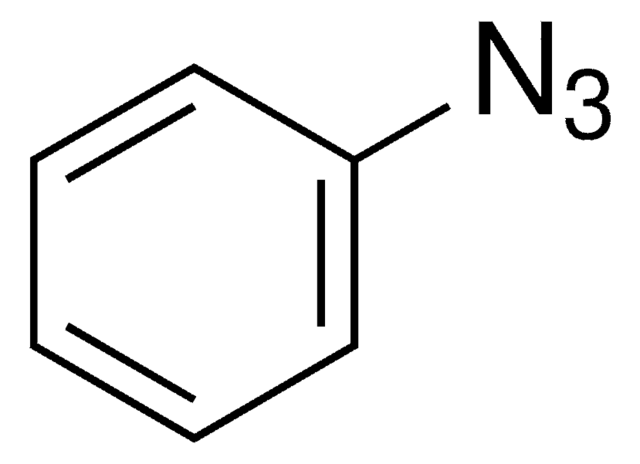747777
[Ru(bpz)3][PF6]2
95%
Synonym(s):
Tris(2,2′-bipyrazine)ruthenium bis(hexafluorophosphate), Tris(2,2′-bipyrazine-N1,N1′)ruthenium(II) hexafluorophosphate
About This Item
Recommended Products
Quality Level
Assay
95%
form
powder
reaction suitability
core: ruthenium
reaction type: Photocatalysis
reagent type: catalyst
impurities
may contain ca. 5% acetonitrile
mp
162-210 °C (The MP data is a DECOMP) (lit.)
SMILES string
[N]12=CC=NC=C1C3=CN=CC=[N]3[Ru]24([N]5=CC=NC=C5C6=CN=CC=[N]64)([N]7=CC=NC=C78)[N]9=C8C=NC=C9
InChI
1S/3C8H6N4.Ru/c3*1-3-11-7(5-9-1)8-6-10-2-4-12-8;/h3*1-6H;
InChI key
VEEMVPAUPIJPLA-UHFFFAOYSA-N
Looking for similar products? Visit Product Comparison Guide
General description
Application
Product can be used with our line of photoreactors: Including Penn PhD (Z744035) & SynLED 2.0 (Z744080)
Storage Class Code
11 - Combustible Solids
WGK
WGK 3
Flash Point(F)
Not applicable
Flash Point(C)
Not applicable
Choose from one of the most recent versions:
Certificates of Analysis (COA)
Don't see the Right Version?
If you require a particular version, you can look up a specific certificate by the Lot or Batch number.
Already Own This Product?
Find documentation for the products that you have recently purchased in the Document Library.
Customers Also Viewed
Our team of scientists has experience in all areas of research including Life Science, Material Science, Chemical Synthesis, Chromatography, Analytical and many others.
Contact Technical Service

![(Ir[dF(CF3)ppy]2(dtbpy))PF6](/deepweb/assets/sigmaaldrich/product/structures/982/913/02dd8ddd-6deb-40a0-ab9b-07b18f1abb09/640/02dd8ddd-6deb-40a0-ab9b-07b18f1abb09.png)

![[Ir(dtbbpy)(ppy)2]PF6](/deepweb/assets/sigmaaldrich/product/structures/158/329/2544d673-d267-4aa1-8f46-2652aad4bfa0/640/2544d673-d267-4aa1-8f46-2652aad4bfa0.png)

![[Ru(bpm)3][Cl]2](/deepweb/assets/sigmaaldrich/product/structures/409/623/77fb16dd-36fb-4159-9213-b4d57470be15/640/77fb16dd-36fb-4159-9213-b4d57470be15.png)




![Tris[2-phenylpyridinato-C2,N]iridium(III) sublimed grade](/deepweb/assets/sigmaaldrich/product/structures/167/234/658d0b76-d31d-4fd5-8041-e04e207227c9/640/658d0b76-d31d-4fd5-8041-e04e207227c9.png)


![[Ir{dFCF3ppy}2(bpy)]PF6](/deepweb/assets/sigmaaldrich/product/structures/180/924/79119ac4-7d62-429d-b23d-a14c012c6050/640/79119ac4-7d62-429d-b23d-a14c012c6050.png)
